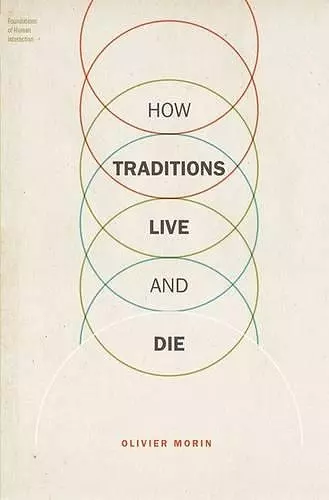How Traditions Live and Die
Format:Paperback
Publisher:Oxford University Press Inc
Published:7th Jan '16
Currently unavailable, and unfortunately no date known when it will be back
This paperback is available in another edition too:
- Hardback£127.50(9780190210496)

Of all the things we do and say, most will never be repeated or reproduced. Once in a while, however, an idea or a practice generates a chain of transmission that covers more distance through space and time than any individual person ever could. What makes such transmission chains possible? For two centuries, the dominant view (from psychology to anthropology) was that humans owe their cultural prosperity to their powers of imitation. In this view, modern cultures exist because the people who carry them are gifted at remembering, storing and reproducing information. How Traditions Live and Die proposes an alternative to this standard view. What makes traditions live is not a general-purpose imitation capacity. Cultural transmission is partial, selective, often unfaithful. Some traditions live on in spite of this, because they tap into widespread and basic cognitive preferences. These attractive traditions spread, not by being better retained or more accurately transferred, but because they are transmitted over and over. This theory is used to shed light on various puzzles of cultural change (from the distribution of bird songs to the staying power of children's rhymes) and to explain the special relation that links the human species to its cultures. Morin combines recent work in cognitive anthropology with new advances in quantitative cultural history, to map and predict the diffusion of traditions. This book is both an introduction and an accessible alternative to contemporary theories of cultural evolution.
The entire book is written in a very appealing essayistic style, while at the same time facing serious issues with a deep conceptual analysis of the recent literature ... The approach of Morin is certainly a very serious proposal to relate cultural traditions and evolution. Its emphasis of finding the keys in the population of people and ideas, rather than simply in genes, is worthy of attention both of evolutionary psychologists, and for the researchers of many cultural disciplines. * Csaba Pléh, Evolutionary Psychological Science, Springer Nature *
ISBN: 9780190210502
Dimensions: 231mm x 155mm x 23mm
Weight: 408g
320 pages